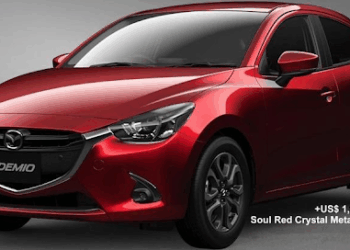Buying your first car is an exciting milestone. Whether it’s for daily commuting, family use, or simply the joy of finally having your own ride, the process is filled with emotions and decisions. It’s also natural to feel a little overwhelmed—questions about cost, fuel economy, reliability, and practicality pop up fast.
And of course, the famous Kenyan question always arises: “Mafuta ya 500 itanifikisha wapi?” In other words, how far will KES 500 worth of fuel take you? It’s more than just a joke—it’s a real concern for many first-time car buyers trying to gauge fuel efficiency.
Here are some essential tips to help you make the right decision when buying your first car in Kenya.
1. Set a Realistic Budget—and Stick to It
It’s easy to get carried away by a sleek-looking car in a dealership or online listing. But remember, the cost of owning a car goes beyond the sticker price.
Apart from the purchase price, factor in:
- Insurance premiums
- Fuel consumption
- Servicing and maintenance
- Annual inspection and logbook transfer fees
Start with a clear, honest budget and don’t stretch beyond what you can comfortably afford. If you’re shopping for budget-friendly used vehicles, platforms like https://auto24.co.ke/ list reliable models within various price ranges, including beginner-friendly cars like the Toyota Vitz, Honda Fit, and Mazda Demio.
2. Go for a Reliable Car
You don’t want a car that turns you into best friends with mechanics from Nairobi to Eldoret. Your first car should be dependable. Japanese brands such as Toyota, Honda, Nissan, and Mazda are widely known for their reliability, ease of maintenance, and availability of parts in Kenya.
Choose a car with a good reliability record. That way, your visits to the garage will mostly be for scheduled servicing—not emergencies.
3. Understand the True Cost of Ownership
Many first-time buyers underestimate what it really costs to keep a car on the road. Here’s what to consider:
- Fuel Efficiency: Look for cars that sip fuel, not gulp it. Small hatchbacks and sedans often offer excellent fuel economy.
- Insurance: Older cars generally cost less to insure, but confirm rates based on model and engine capacity.
- Servicing and Repairs: Some cars are cheap to buy but expensive to maintain. German cars, for example, are respected—but they can be costly to service compared to Japanese alternatives.
You can read more about the real costs of car ownership in Kenya here.
4. Choose a Car With Readily Available Parts
Spare parts availability is crucial. A car whose parts are difficult to find (or expensive) can turn into a financial nightmare. Stick to models commonly found on Kenyan roads—chances are, their parts are affordable and widely stocked.
Also, make sure your local mechanics understand how to work on your chosen car. Some imported brands, while flashy, might require specialist mechanics or tools not available everywhere.
5. Think About Where You’ll Be Driving
Are you mostly driving in urban areas, or will you be navigating rural roads with potholes, mud, or gravel? For city driving, sedans and hatchbacks do the job well. But if your route includes rough terrain, a car with higher ground clearance like a Toyota Probox, Suzuki Escudo, or Honda CR-V may be a better fit.
6. Consider Who You’ll Be Carrying
Is it just you, or will you often have family or friends on board? A small car like a Toyota Passo is perfect for individuals or couples. But if you need space for kids, colleagues, or weekend trips with the squad, opt for something more spacious—maybe a station wagon or a compact SUV.
7. Practicality Over Prestige
Don’t fall for appearance alone. Your first car should serve your lifestyle. Ask yourself:
- Will I be transporting luggage or equipment?
- Do I need boot space for business or deliveries?
- Is rear seat legroom important?
If you need storage, check out hatchbacks or wagons with good trunk space. If it’s about maneuverability and fuel economy, a compact car will do just fine.
8. Be Cautious About Where You Buy
Unfortunately, car scams are common in Kenya. Don’t fall into the trap of “too good to be true” deals. Deal with reputable car yards, licensed importers, or platforms like https://auto24.co.ke/, which provide verified listings and can reduce the risk of fraud.
Always:
- Ask for original logbooks
- Verify ownership via NTSA
- Do a mechanical inspection before purchase
- Sign proper sale agreements
Takeaway: Your First Car Should Fit You
Buying your first car doesn’t have to be stressful. If you focus on what really matters—budget, reliability, running costs, and personal needs—you’ll drive off not just with a car, but with peace of mind.
Ready to explore more car tips, road trip ideas, or automotive updates for Kenyan drivers? Visit Automag Kenya for helpful guides and the latest motoring news.




